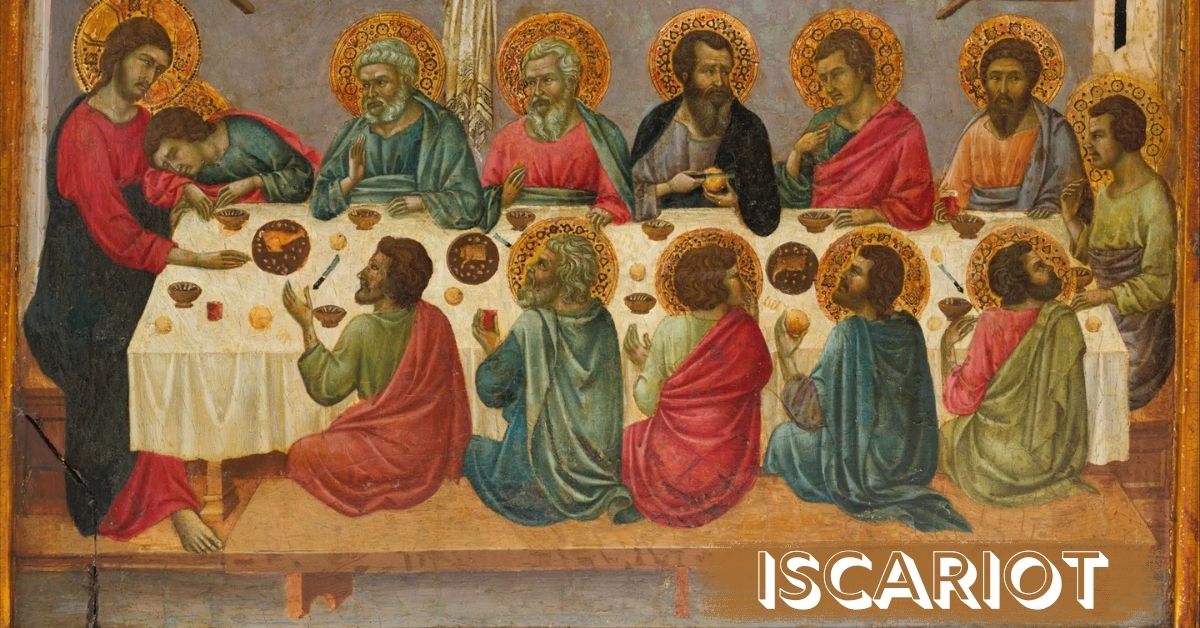The name “Iscariot” instantly brings to mind betrayal, deceit, and tragedy. Judas Iscariot, one of the twelve disciples of Jesus Christ, is often remembered only for his act of treachery that led to the crucifixion. However, the story of Judas is not just a tale of betrayal—it is a narrative filled with human weakness, theological debates, cultural interpretations, and lessons that continue to echo through centuries. To understand Iscariot is to explore not just the man but also the meaning of betrayal, morality, and redemption in human history.
The Origins of the Name Iscariot
The surname “Iscariot” is often believed to mean “man from Kerioth,” a town in Judea. This detail is important because Judas would have been the only disciple from Judea, while the rest came from Galilee. His background may have made him different from his fellow disciples, possibly influencing his role and perspective. Over time, “Iscariot” has become a label synonymous with treachery, forever linked with his betrayal of Christ.
Judas Iscariot as a Disciple
Judas was not just an outsider; he was entrusted with responsibility. According to the Gospel accounts, Judas served as the treasurer for the disciples, managing their funds. This position showed trust, but also brought temptation. His inclusion among the twelve shows that he was, at least initially, a committed follower of Jesus, someone chosen to walk closely with Him.
The Role of Judas in the Gospels
The Gospels portray Judas in varying shades. In Matthew and Mark, his act of betrayal seems motivated by greed, while Luke emphasizes that Satan entered into him. John paints him as a thief who often helped himself to the disciples’ money. Each Gospel reflects a different perspective, but together they present a man torn between loyalty, personal desires, and external forces.
The Act of Betrayal
The defining moment of Judas’s life was the kiss of betrayal. For thirty pieces of silver, he identified Jesus to the authorities with a kiss, a gesture that was supposed to signify affection. This act became the ultimate symbol of betrayal, combining intimacy with treachery. The sum of money, often compared to the price of a slave, further highlights the weight of the decision.
The Aftermath of Betrayal
After handing Jesus over, Judas was consumed by regret. According to Matthew, he tried to return the silver, but the priests rejected it. Overwhelmed with guilt, he threw the money into the temple and went out to hang himself. Acts presents a slightly different version, where Judas fell in a field and died tragically. Both accounts underline the torment he faced after the betrayal.
Symbolism of Judas in Christianity
Judas is not just a historical figure; he is a symbol. He represents the danger of greed, the weakness of human will, and the tragedy of missed redemption. In Christian teachings, Judas serves as a reminder that even those close to the divine can falter. His story is a warning about the consequences of choices and the destructive power of sin.
Theological Debates About Judas
The role of Judas has sparked endless debate among theologians. Was his betrayal predestined to fulfill prophecy, or was it an act of free will? Some argue Judas was a necessary part of God’s plan for salvation, while others believe he could have chosen differently. These questions touch the core of Christian theology, raising issues about destiny, responsibility, and divine purpose.
Judas in Literature and Art
Throughout history, artists and writers have reimagined Judas in countless ways. Dante placed him in the lowest circle of hell, forever punished for his treachery. Modern writers sometimes depict him as a tragic figure, misunderstood or even manipulated by forces beyond his control. From paintings to plays, Judas has remained a powerful figure, embodying humanity’s struggle with loyalty and betrayal.
Judas in Popular Culture
Beyond religion, Judas has influenced culture worldwide. The phrase “Judas kiss” is used in politics, literature, and everyday life to describe betrayal disguised as loyalty. Musicians, filmmakers, and novelists often invoke his name to represent the ultimate act of treachery. His story has transcended the Bible, becoming a universal metaphor.
The Psychology of Betrayal
Looking at Judas through a psychological lens, his actions reflect patterns of human behavior. Betrayal often comes from those closest to us, making it more painful. Judas’s struggle with money, trust, and loyalty mirrors issues that still exist today. His guilt afterward also illustrates how conscience can torment a person after a grave mistake.
The Lessons From Iscariot
Despite the darkness of his actions, Judas’s story offers powerful lessons. It warns against the dangers of greed, selfish ambition, and weakness in faith. At the same time, it reminds us that regret without repentance can lead to despair. Judas’s tragedy lies not just in betrayal but in his failure to seek forgiveness when it was still possible.
Judas and the Concept of Redemption
One of the most profound questions is whether Judas could have been redeemed. Jesus forgave even those who crucified Him, so could Judas have received mercy if he had sought it? This question touches the heart of Christian faith—the boundless possibility of forgiveness. Judas’s despair cut him off from hope, but his story continues to fuel debates about divine mercy.
Is Judas a Villain or a Tragic Hero?
While most traditions label Judas as the greatest villain, some interpretations paint him as a tragic hero whose role was necessary for the fulfillment of salvation. This dual view makes him a complex figure—someone both condemned and pitied. Whether villain or victim, his life leaves us questioning the nature of justice and compassion.
Judas’s Legacy in History
The legacy of Judas Iscariot has influenced not only theology but also language, culture, and philosophy. His name has become shorthand for betrayal across the world. Yet, his life also serves as a cautionary tale that continues to resonate. The story of Iscariot is not just about the past; it is about the timeless human struggle between loyalty and betrayal.
Conclusion
The story of Iscariot is more than a biblical account—it is a mirror reflecting human nature. Judas’s betrayal may forever mark him, but it also forces us to examine our own choices, loyalties, and weaknesses. His life warns us of the dangers of greed and the devastating weight of regret. Ultimately, Judas Iscariot’s name may be tied to betrayal, but his story challenges us to think deeply about forgiveness, destiny, and the fragile line between faith and failure.
FAQs
- Why did Judas betray Jesus?
Judas betrayed Jesus for thirty pieces of silver, though some suggest deeper motives like disillusionment or influence from external forces. - Was Judas’s betrayal predestined?
Theologians debate this—some say it fulfilled prophecy, while others argue it was an act of free will. - How did Judas die?
Matthew records that he hanged himself, while Acts describes a fall in a field that led to his death. - Can Judas be forgiven?
Christian theology teaches that forgiveness is possible for all who repent, though Judas’s despair cut him off from redemption. - What does the term “Judas kiss” mean today?
It refers to betrayal disguised as an act of friendship or loyalty.












